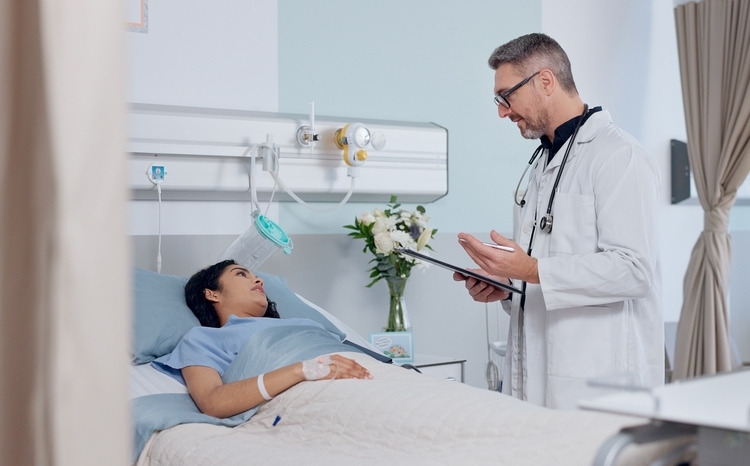Somerset NHS FT trials AI algorithm for lung cancer diagnosis
- 27 June 2022

Somerset NHS Foundation Trust is testing whether an AI algorithm can help it meet its national targets for lung cancer diagnosis, by speeding up the time between screening.
The red dot algorithm, from Behold.AI, has shown positive initial results. It has more than halved the time between initial x-ray screening and a CT scan – the gold standard for detecting lung cancer.
The AI technology prioritises which x-rays require urgent attention from a radiologist. This has led to the time between chest x-ray and CT scan falling to 2.8 days, from seven days.
Dr Paul Burn, consultant radiologist at Somerset NHS Foundation Trust, said: “There’s been a lot of buzz about AI at radiology meetings, but there’s little experience of using it in an NHS trust. We embarked on a bottom-up initiative to test the algorithm, with the aim of helping us improve our referral times.”
A study found that of the 562 chest exams that were classified as high confidence normal by the red dot algorithm, radiologists disagreed with just 13 of the cases. This gave a negative predictive value of 97.7 per cent.
Somerset, Wiltshire Avon and Gloucestershire Cancer Alliance (SWAG) provided funding to support the study.
Manager of SWAG, Patricia McLarnon added: “Somerset, Wiltshire Avon and Gloucestershire Cancer Alliance embraces a positive culture towards innovation and how it can support achievement of the Long Term Plan ambitions and cancer recovery.
“We were pleased to offer funding to support this, and thank Somerset NHS Foundation Trust and in particular Dr Paul Burn for testing this innovation locally and helping build the evidence required to develop the innovation further so that it is recognised as a mechanism to improve outcomes for cancer patients.”
Somerset NHS Foundation Trust has previously used virtual reality in the training of its medical students and junior doctors and now it has stepped up its technological advances with this AI trial.






2 Comments
I am working at NHS, is it possible to get the data so we can also apply some AI algorithms and test the result.
Can you tell me if the data is publicly available as we’d like to see if we can improve the cancer maker identification with deep learning and AP princliples
Comments are closed.